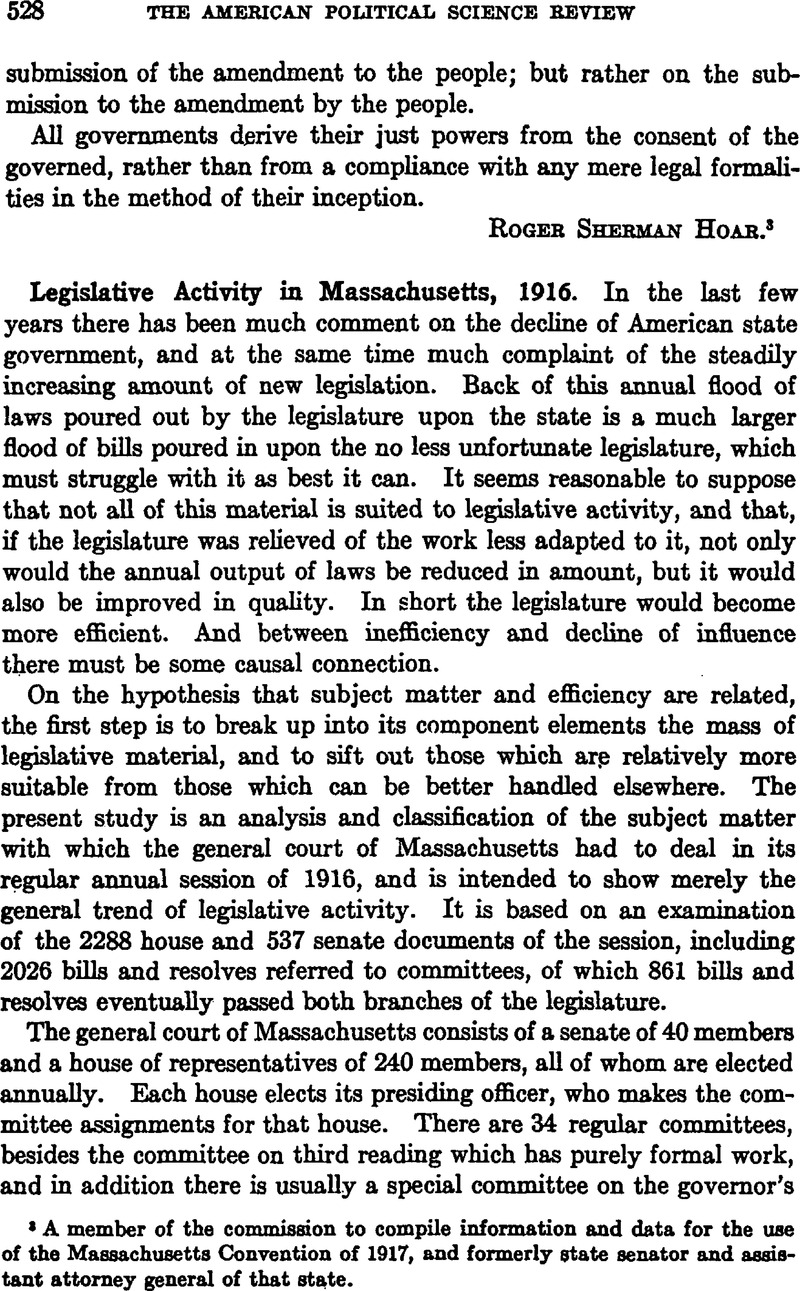No CrossRef data available.
Article contents
Legislative Activity in Massachusetts, 1916
Published online by Cambridge University Press: 01 August 2014
Abstract

- Type
- Legislative Notes and Reviews
- Information
- Copyright
- Copyright © American Political Science Association 1917
References
1 “Leave to withdraw” is used in connection with bills introduced on petition; “ought not to pass” with bills introduced on leave by a member.
2 The figures for bills passed include, in addition to those signed and those vetoed, 13 bills which became law without executive approval; they do not include 8 bills which passed both houses but were recalled and not repassed.
3 Group II comprises in the main bills authorizing a specific act by a specific state agency, locality, individual, or corporation; it therefore does not include claims and pensions to be paid to a specific individual by the state; those are part of the state-wide policy in substitution for legal liability of the state, and come in group I.
4 Cf. Report of the joint special committee on Legislative Procedure, p. 66 ff. House No. 280 (1915).
5 An example also of the waste of time is senate bill 257, “An act to revise the charter of Springfield,” which was 95 pages long when introduced, and as Chapter 371 of the acts occupies 42 pages of small type. It gave the city the option of two charters.
6 Typical bills of this class are: in cities, house 98, “That Boston may pay sum to mother of late Ralph T. Shea;” H. 731, “On assessing sidewalks in Boston;” H. 732, “On more pay for Boston police at crossings;” H. 1281, “To restore P. J. Flatley to Boston. police;” H. 864, “On compensation of Boston firemen on probation;” in Metropolitan Affairs, H. 354, “For entrance to subway at Park Square;” H. 973, “On water used by several city departments in Boston;” H. 1703, “For regulation and paving of D or E streets on Commonwealth Flats, South Boston;” H. 1546, “On automatic sprinklers in Boston tenement houses;” in Social Welfare; H. 1140, “For pensions for certain lamplighters formerly in the employ of Boston;” S. 234, “That Boston school committee may retire certain janitors, etc.”
7 Cf. Report on Legislative Procedure, p. 83.
8 Cf. Report on Legislative Procedure, p. 77 ff.
9 The Report on Legislative Procedure emphasizes this very strongly (p. 79 ff.).
10 The special committee recommends either that department heads be given full discretion in fixing salaries, or preferably that salaries be standardized (p. 60 ff.).





Comments
No Comments have been published for this article.